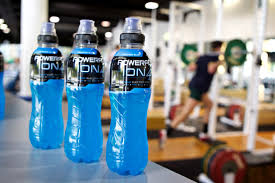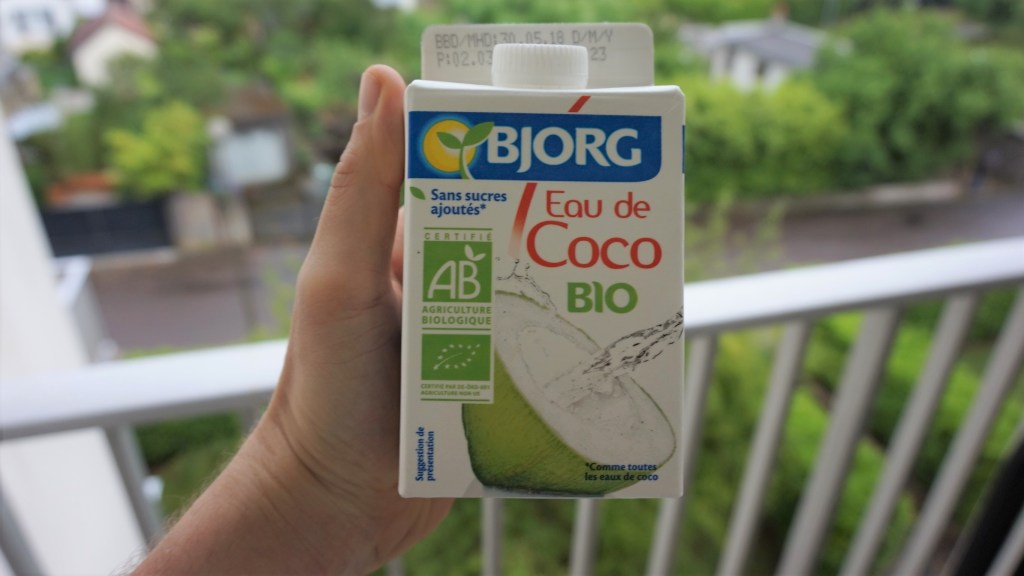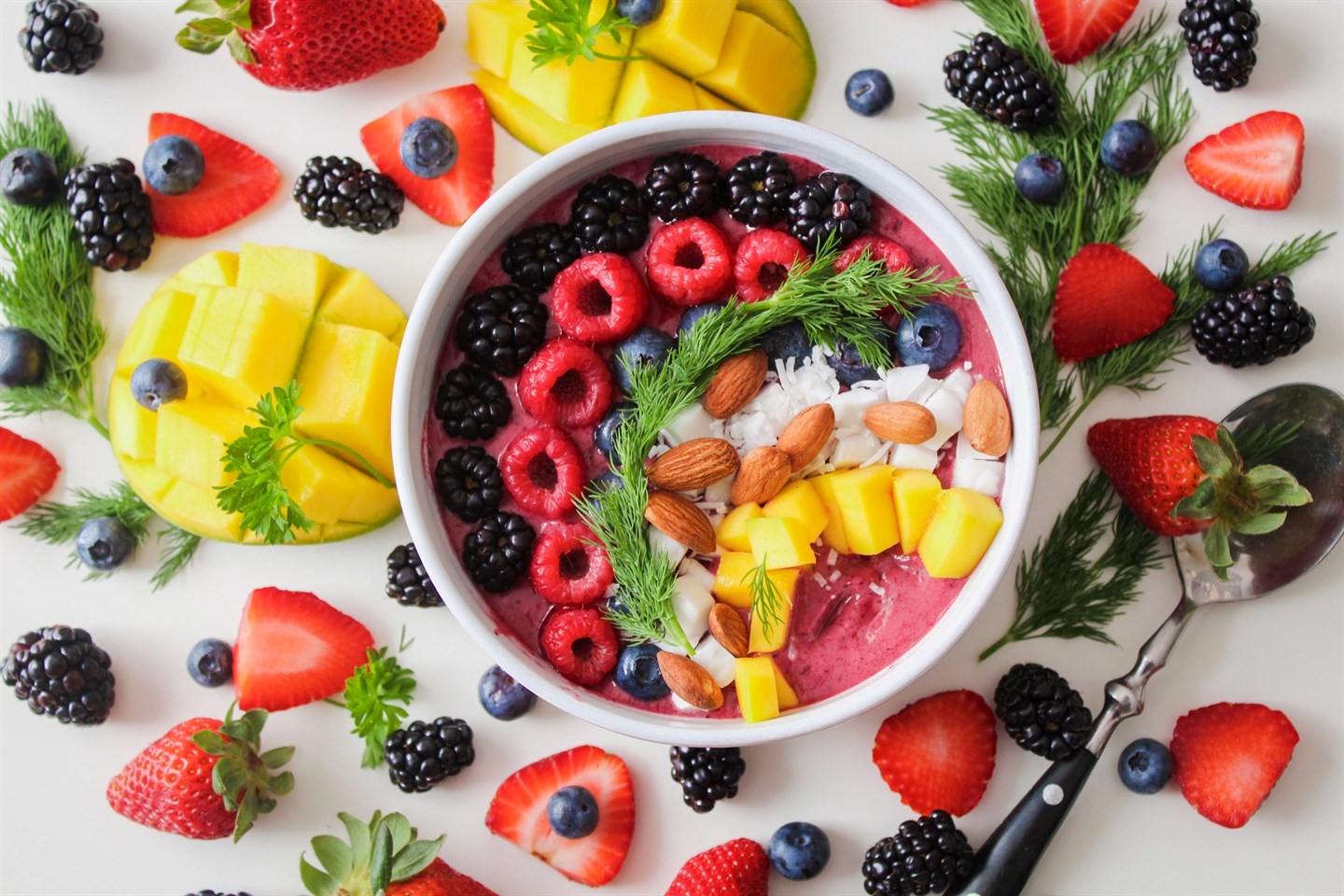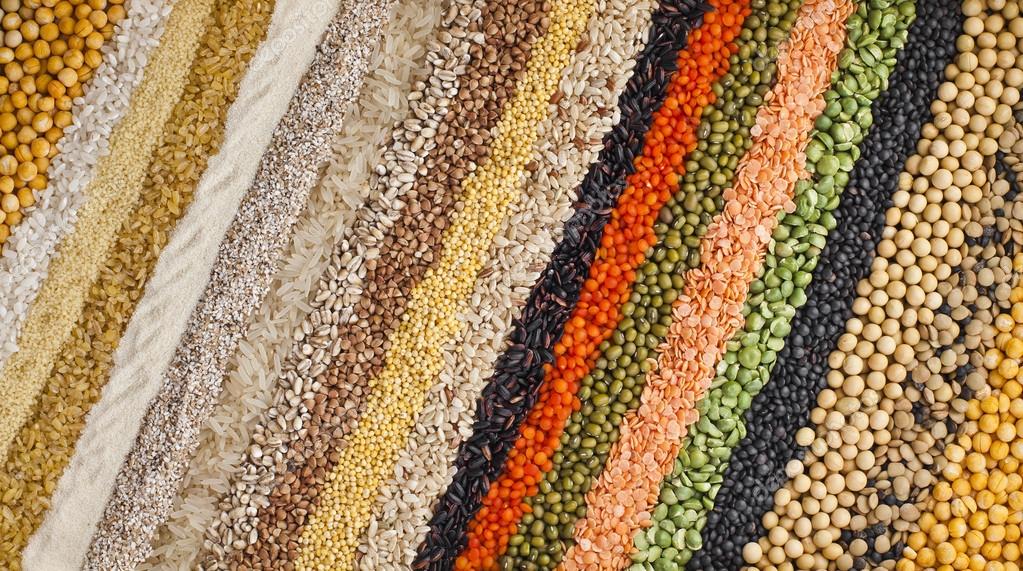Coconut water (coconut water) is a drink still little known by most of the population, but it is beginning to find its place in the field of sport. Today many athletes consume coconut water (extracted from young coconuts), even if the advertisements give pride of place to processed energy drinks. So what is the difference between these drinks and coconut water? Is there any point in turning to coconut water as a sports drink?
Energy drinks, a great promise
Energy drinks (for sports, not to be confused with energy drinks – such as Red Bull) sold in stores have really been popular in recent years, and the food companies that produce them know it well.
One of the best known surely, Powerade, is a brand that is part of the large Coca-cola group. Put simply, an energy drink is a higher or lower concentrate of sugar, with varying levels of electrolytes, as well as artificial flavors and colors.

Basically, their concentration of electrolytes (sodium, calcium, magnesium, potassium) is their only real asset. It turns out that electrolytes are very interesting in the context of practice sporty, mainly for fairly long training sessions (over 1 hour).
In fact, during exertion, the body sweats to regulate the body’s internal temperature, and will therefore gradually lose water and electrolytes, present in perspiration. This electrolyte supply is necessary to improve muscle contraction, prevent cramps and maintain a good energy level.

The sugar present in energy drinks is also interesting for sports, but it is often poorly dosed, either too low or too high. What’s more, the real problem is that most of them are refined sugars, industrial sugar, to which we add artificial flavors and colors.
Which makes them sweet and flavored drinks. In conclusion, some are very effective but for the most part they remain beautiful commercial promises. Apart from the presence of electrolytes, the color of the drink is beautiful, the packaging is neat, but it stops there.
What does coconut water contain?
Before talking about the composition of coconut water, it is always good to remember that it is a drink by definition natural. This simply means that it was not invented at the factory and therefore is much better recognized by the body.
Fresh, whole foods and natural drinks have the advantage of being truly ‘made’ for us. In other words, all of the nutrients in them will be always an infinitely higher quality and allowing a high quality assimilation, in comparison to food and drinks of industrial source.

Coming back to its sporting interest, coconut water contains good proportions of electrolytes but also quality sugars, and without the drawbacks of food additives (potentially dangerous for health). It appears that some of its components are weaker than those present in energy drinks.
But as explained above, common sense leads us to believe that the assimilation and metabolization of nutrients from coconut water is much more qualitative than in energy drinks.
Coconut water is therefore well suited to athletes in order to support muscle contraction and reduce the risk of cramps. It is a little more expensive to buy, but as often, the question to ask remains the same: quality or quantity?




